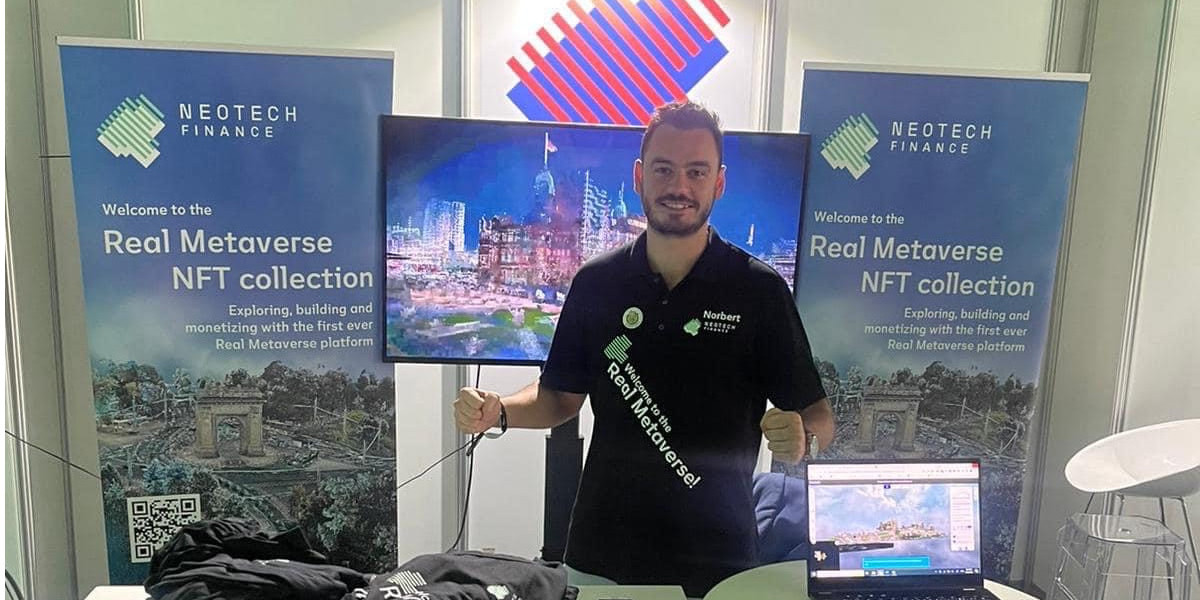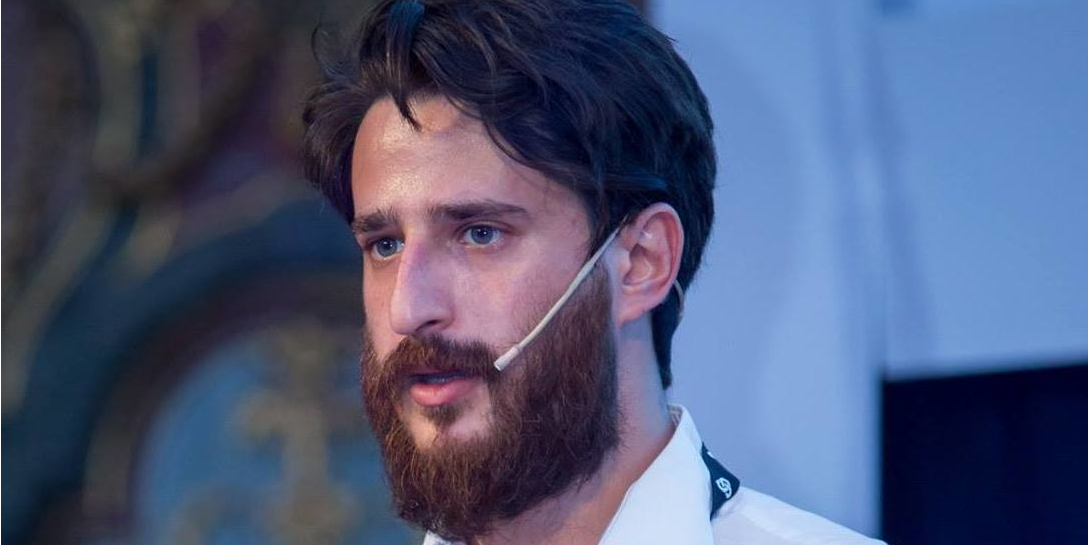Could you tell us more about yourself, your career and the organisation you work for?
My career started from outside the crypto world. I was very interested in filming entire cities, mostly big cities like Bucharest and Budapest. For two years, I have been trying to get all of this data from the digital version of entire cities and tried to combine it with the metaverse. For this, I worked a lot on the technical side of the data: mostly how to get this data and how to make it compatible with gaming programs, be that a shooting game, racing game, fly around game, a 3D game. Anything is possible. Most importantly, the data should represent a real, existing infrastructure.
By that time, I was working at MeliTech City, which is a smart city technologies company that scanned entire cities and put it at the disposal of governments and city halls. From this experience, I got to know Neotech Finance. Here, I joined a team that works on building the real metaverse, starting from the real world. I am very happy to be part of an enthusiastic team, which is expanding the horizons of the company also to the NFT and marketing sector.
How do you manage to approach the public to the metaverse experience?
I always want to point out that the true utility of the Metaverse does not exist yet. Is the metaverse an entertainment platform for gamers or should it represent the real world? I believe it is our job to find the real purpose of the metaverse and make it comprehensible for the people. In this sense, I believe Neotech Finance can create the infrastructure for this metaverse-ecosystem. For example, we can scan an entire stadium to create the infrastructure for a sports event in the metaverse, but also for a music event. We are already working with some decentralised music companies with the purpose of building a stadium in the metaverse where they can hold a concert.
Furthermore, we also work with historical buildings and museums. Also in the gambling world, we can build an entire casino in the metaverse. In this way, our purpose is to bring value to the Metaverse ecosystem and provide all metaverse projects with the right infrastructure. We are sure that this will lead to the growth of the whole ecosystem.
You are also active in the creation of NFTs, how does this process work?
I will tell you more about our first NFT collection, which will be launched very soon. It is called the “Genesis NFT Collection”, because it is the first collection. It consists of 1000 NFTs from Romanian historical monuments, universities, churches, museums, and entire streets. We go into the real world, transform the data into digital form, and we offer the entire project in the form of an NFT. As an NFT owner, people will be able access an entire street in 3D digital form.
I believe that this first NFT collection has three major upsides: first, the owner of a Genesis NFT will be whitelisted in all of our future collections, which will also cover Budapest and Paris next year. Second, the possibility to generate a passive income through the introduction of a 3D marketing object into the NFT. This is like an ad that our partners support in order to generate more attraction. Third, and for me being a technical person, my favourite pro, is the data of the NFT itself. It is a 3D point cloud data that each NFT holder can export and can implement into Unreal engine or Unity tools to create your own floating game or racing game in a matter of minutes.
Some countries such as Spain and others have extended their VAT system to NFTs, what do you think about this development?
I think government regulations are necessary in the long term, even considering taxation. We have to be sure that governments agree with what we do as well. Even though I believe that the web 3 ecosystem will make the world a better place, regulations are necessary. This is a phrase I heard so many times in my career and I am sure the majority of the companies in the crypto world are working towards this aim
What is in your opinion the most relevant challenge that crypto companies need to face today and how would it be possible to help them?
One big challenge, especially for us as a diverse company community, is credibility. Unfortunately, there were many projects that turned out to be scams. This is why we try to provide actual data that everyone can see with his or her own yes. We have to be very careful with this because I think credibility is one of the most important aspects of crypto.
If you could give regulators one piece of advice about the upcoming regulations of the crypto market, what would it be?
Listen to the web3 people. This is what I try to do at every conference. In the web3 ecosystem, almost everybody is open to everything. There is no such thing as unimportant ideas. Only different opinions exist. You can take and grab from that opinion and elaborate it in your mind. This is also important for government regulation.
The web3 is a community that grows as a community. There are many ideas and opinions and I think regulators should try to listen to them. Because this is what unites people. I think uniting people is what we need in our lives for the future.
What is in your opinion the future of crypto and why should people be interested in this world?
There is a very nice quote I heard: “future jobs are the ones that your parents or grandparents don’t understand”. In this regard, If I talk to my father about crypto I am sure he would be very proud but I am not so sure he will understand. Therefore, I see many job opportunities that could come up in the web3 space. This is a great opportunity for young people to join a friendly ecosystem where you benefit from the experience of others and from the growth of the entire ecosystem.
We would like to thank Norbert again for sharing his insights. If you have any questions, suggestions or if you want to be our next interviewee, do not hesitate to contact us via info@zkportal.io


